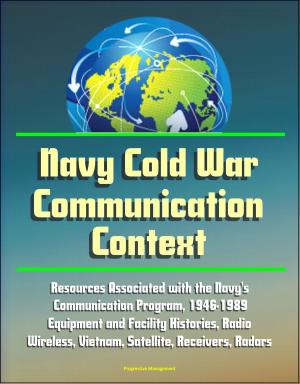The International Criminal Court (ICC): Why We Need It, How We Got It, Our Concern About It - History of War Crimes and Consequences, Treaty of Rome, Vietnam War, Atrocities, War Fighter Implication
Nonfiction, Reference & Language, Law, Military, History, United States| Author: | Progressive Management | ISBN: | 9781370161836 |
| Publisher: | Progressive Management | Publication: | September 12, 2016 |
| Imprint: | Smashwords Edition | Language: | English |
| Author: | Progressive Management |
| ISBN: | 9781370161836 |
| Publisher: | Progressive Management |
| Publication: | September 12, 2016 |
| Imprint: | Smashwords Edition |
| Language: | English |
This excellent report has been professionally converted for accurate flowing-text e-book format reproduction. Three essays in this book provide the reader with a better and more comprehensive understanding of the ICC. War crimes have plagued mankind for centuries. While there is disagreement over exactly what constitutes a war crime and what a war crime is, the fact remains that military forces have committed atrocities throughout recorded history.
The way of prosecuting war criminals or punishing them through nonjudicial, political mechanisms has also changed over time. Options range from take no prisoners or summary executions of prisoners, at the one extreme, to judicial trials and sentencing, at the other extreme. The problem with judicial proceedings is that they can have a hint of victor's justice, especially if the jurisdiction, legitimacy, and authority of the court are not established in advance. The International Criminal Court (ICC) was established on 17 July 1998 in part to address these concerns.
However, the United States (US) has not ratified the Rome Treaty of 17 July 1998 and has specifically stated it will not be bound by the treaty. Nonetheless, the international community implemented the treaty, and the ICC became a reality on 1 July 2002 after the 60th nation ratified the treaty. What exactly does ratification mean for members of the United States Armed Forces? This essay explores the implications for military members in four parts. It traces the historical development of war crimes and looks at what types of issues the ICC might have jurisdiction over. Then, it focuses on international criminal courts in general and examines the predecessors of the ICC: Nuremberg/Tokyo, the ICC for the former Yugoslavia, and the ICC for Rwanda. The essay then details the inner workings of the ICC. Finally, it looks at the question of whether members of the United States Armed Forces are subject to ICC jurisdiction. This answer will be based on a legal, political, and moral analytical framework.
The history of war crimes is nearly as old as recorded history. When many people think of war crimes, their thoughts normally turn to the twentieth century and the Nuremberg tribunals. The history, though, is far older. As far back as 400 BC, the Greeks were writing about the Battle of Melos. Similarly, in 149-46 BC at the Battle of Carthage, there were disturbing abuses by the conquering Romans.
This excellent report has been professionally converted for accurate flowing-text e-book format reproduction. Three essays in this book provide the reader with a better and more comprehensive understanding of the ICC. War crimes have plagued mankind for centuries. While there is disagreement over exactly what constitutes a war crime and what a war crime is, the fact remains that military forces have committed atrocities throughout recorded history.
The way of prosecuting war criminals or punishing them through nonjudicial, political mechanisms has also changed over time. Options range from take no prisoners or summary executions of prisoners, at the one extreme, to judicial trials and sentencing, at the other extreme. The problem with judicial proceedings is that they can have a hint of victor's justice, especially if the jurisdiction, legitimacy, and authority of the court are not established in advance. The International Criminal Court (ICC) was established on 17 July 1998 in part to address these concerns.
However, the United States (US) has not ratified the Rome Treaty of 17 July 1998 and has specifically stated it will not be bound by the treaty. Nonetheless, the international community implemented the treaty, and the ICC became a reality on 1 July 2002 after the 60th nation ratified the treaty. What exactly does ratification mean for members of the United States Armed Forces? This essay explores the implications for military members in four parts. It traces the historical development of war crimes and looks at what types of issues the ICC might have jurisdiction over. Then, it focuses on international criminal courts in general and examines the predecessors of the ICC: Nuremberg/Tokyo, the ICC for the former Yugoslavia, and the ICC for Rwanda. The essay then details the inner workings of the ICC. Finally, it looks at the question of whether members of the United States Armed Forces are subject to ICC jurisdiction. This answer will be based on a legal, political, and moral analytical framework.
The history of war crimes is nearly as old as recorded history. When many people think of war crimes, their thoughts normally turn to the twentieth century and the Nuremberg tribunals. The history, though, is far older. As far back as 400 BC, the Greeks were writing about the Battle of Melos. Similarly, in 149-46 BC at the Battle of Carthage, there were disturbing abuses by the conquering Romans.















